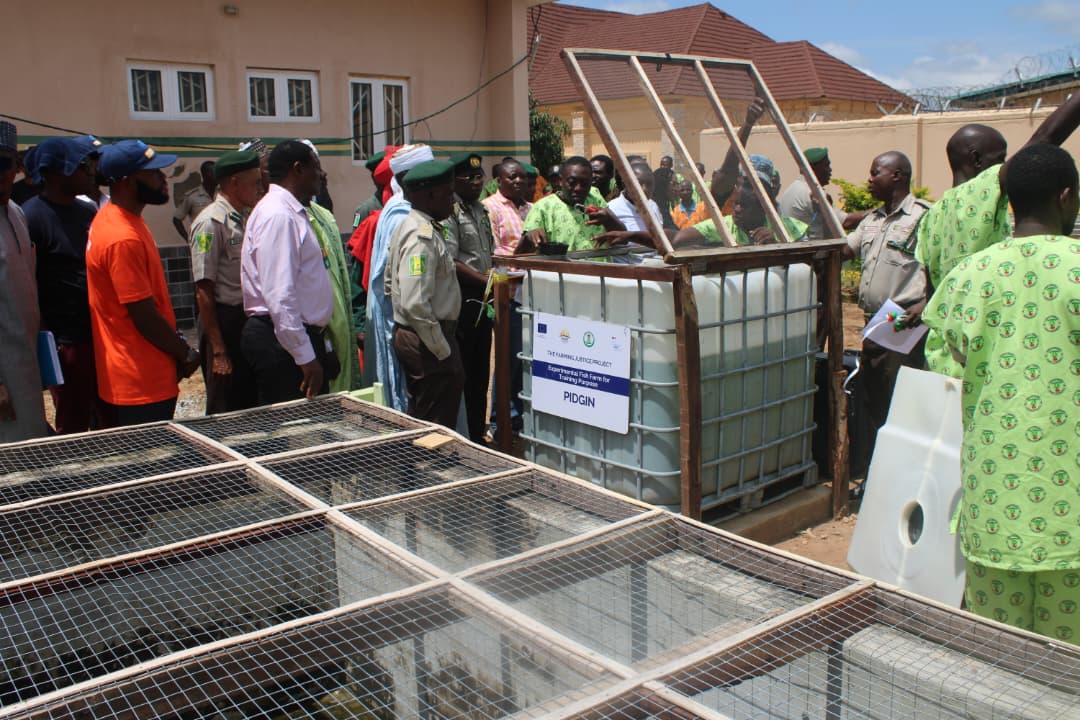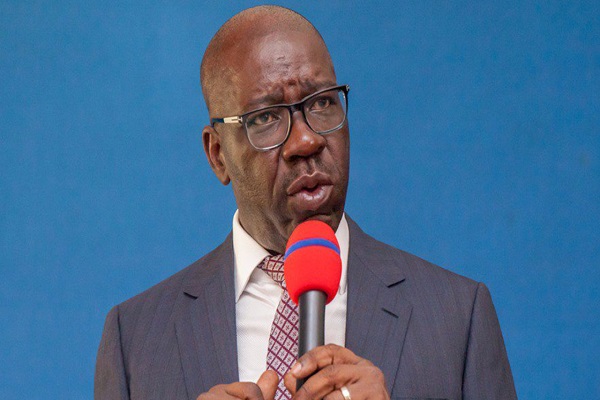A Non-Governmental Organisation, Hope Behind Bars Africa (HBBA), has launched the Farming Justice Project at the Kuje Custodial Centre in Abuja. The initiative aims to help rehabilitate inmates while addressing food insecurity in correctional facilities.
The project, carried out in partnership with the Nigerian Correctional Service (NCoS), is funded by the European Union (EU) through International IDEA under the Rule of Law and Anti-Corruption Programme.
Speaking at the launch on Tuesday, the Executive Director of HBBA, Funke Adeoye, said the project is a practical response to Nigeria’s evolving correctional system.
“With the change in name from ‘prison’ to ‘correctional service,’ it’s only right that our facilities reflect this shift by promoting real rehabilitation and empowerment,” she said.
Adeoye explained that the initiative combines agriculture with restorative justice, allowing inmates to learn valuable skills and contribute meaningfully to society during and after their sentences.
According to her, over 80 inmates are currently being trained in modern farming techniques for crops such as okra, watermelon, and tomato.
“Some of the harvested okra has already been used to feed inmates, which shows that the project is already helping to reduce food shortages,” Adeoye noted.
The project currently runs at both the Kuje Custodial Centre and Dukpa Farm Centre in Abuja, with plans to expand to other correctional facilities across the country — including Lagos, where HBBA previously worked with female inmates on agricultural projects.
Adeoye said the long-term goal is to reduce recidivism by equipping inmates with sustainable means of livelihood.
She also commended the Comptroller General of the NCoS, Sylvester Nwakuche, for supporting public-private partnerships aimed at improving the correctional system.
On the broader issue of justice reform, Adeoye stressed the importance of preparing inmates for life after incarceration.
“Out of over 80,000 inmates in Nigeria, only about 3,600 are on death row. This means most will return to society, and we must ensure they are ready to live productively,” she added.
Read Also;
Kaduna school feeding empowers women, supports local farmers- Gov’s aide
In his remarks, Christopher Jen, the Controller of Corrections for the FCT Command, described the initiative as a major step toward building a safer and more peaceful Nigeria.
“My dream is to see a Nigeria where everyone can live without fear. The eagerness of inmates to learn today gives me hope that this future is achievable,” he said.
Jen also praised Kuje Custodial Centre for being a “centre of excellence” in vocational training, listing ongoing programmes such as barbing, embroidery, carpentry, plumbing, electrical work, shoemaking, soap making, and fishery.
In his goodwill message, Joseph Odeh, a representative of International IDEA, called for a united approach to justice reform.
“Justice reform is not the task of one institution alone. It requires everyone’s commitment — government, private sector, and civil society,” he said.
The event ended with a tour of the Kuje facility, the official unveiling of the Farming Justice Project, and visits to different vocational centres where inmates are receiving hands-on training.




